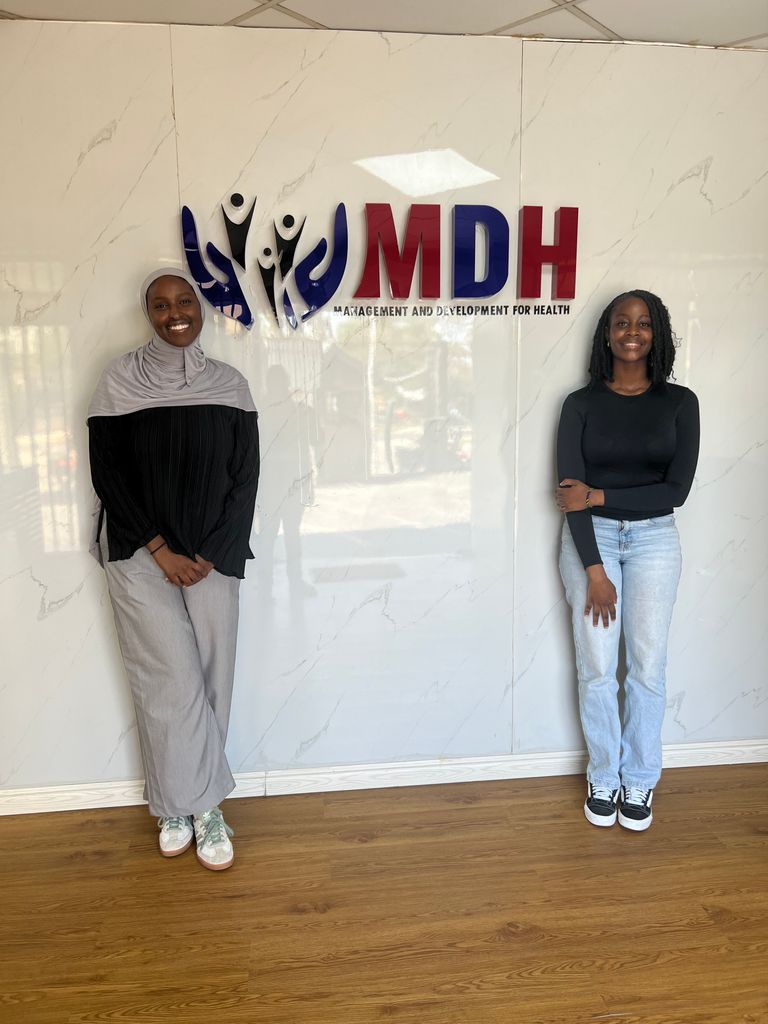Two Years into SPH’s Generation Health Initiative Show Student Empowerment is Important as Ever.
As a result of this initiative, over 70% of SPH students are compensated for their work experiences.

Two Years into SPH’s Generation Health Initiative Show Student Empowerment is Important as Ever
To sustain the practice of public health in the face of budget cuts and to prepare the public health practitioners of tomorrow, the School of Public Health looks to extend Generation Health, an ambitious two-year, $1 million investment announced in 2023 to compensate students who complete practica at under-resourced local organizations.
Students training to become the next generation of public health professionals are navigating the nationwide erosion of research funding, the politization of health education, and the weakening of public trust in scientific authority.
After years gaining specialized knowledge and skills, they are discovering that the way public health operates—through government investment in public data sharing infrastructure, grant-funded research, and the dissemination of accurate health messages reached by scientific consensus—is no longer the reality awaiting them in the field.
Yet, now more than ever, community-based organizations benefit from the contributions of public health practitioners in training via internships and practicum experiences, which are a required component of the School’s MPH program. Non-profits and local government agencies have long entrusted practicum students to spearhead important work but unfortunately, for the same reasons these agencies need the students, they often cannot afford to pay them.
Generation Health, an initiative launched in 2022 by former Dean Sandro Galea, was endowed with a $1 million investment courtesy of SPH’s alumni and friends to ensure that every student would have the financial security to pursue the practicum of their choice. Through the program, accepted applicants are eligible for grants worth up to $5,000 in exchange for 240 hours of work on behalf of an under-resourced organization.

Hodan Mohamed, an MPH student studying epidemiology and biostatistics, received a grant from Generation Health for her practicum with the non-governmental organization Management and Development for Health (MDH) based in Dar es Salam, Tanzania. The funds covered her travel and expenses abroad, she says, enabling her to expand her professional network globally and apply skills she had only ever practiced in the classroom in a real-life setting.
“I would not have been able to have such a transformative experience without it,” says Mohamed, who used the programming language R to conduct statistical analyses of MDH’s readily available data on HIV, later distilling her findings into concise presentations with recommendations to MDH for potential interventions. “I strengthened my research and professional skills internationally, and I am beyond grateful for the opportunity.”
Mohamed is one of more than 200 students to have benefited from Generation Health funding over the past two years. When the program began, more than half of practica were unpaid. Today, over 70% of SPH students are compensated for their work.
Michelle Veras, an MPH student studying program management, completed her practicum with the support of Generation Health at NeighborHealth (formerly East Boston Neighborhood Health), the largest community-based primary care health system in Massachusetts. As a food access program intern, Veras contributed to the operations of a variety of local initiatives including the East Boston Farmers’ Market, a community garden, and the Kids Activity and Nutrition Department at East Boston NeighborHealth. When she graduates this spring, Veras aspires to continue her food justice work.
“I had a very positive and enriching practicum experience,” Veras says. “Receiving the Generation Health funding allowed me to stop worrying about my finances and truly focus on thriving in my practicum.”

Julia Lanham, assistant dean for careers and practicum, and Ryan Wisniewski, assistant director of the practicum program, will present on the Generation Health initiative to students, faculty, and staff from other schools across the university at the upcoming 2025 BU D&I Summit in May. Overall, just under 60% of higher education internships are paid nationwide, but the data also points to systemic inequities in who gets a paid position. A smaller proportion of all internships taken by women were paid compared to men, for example, and the same goes for first-generation interns versus interns whose parents also held internships.
“Student empowerment is important as ever. I feel so proud that SPH recognizes that graduate students need and deserve support to be empowered to tackle some of society’s greatest public health challenges,” says Wisniewski. “Generation Health has been a blessing—watching students take on critical projects in organizations with limited funding and make significant impacts in important public health areas is inspiring. These funds have enabled many opportunities that would otherwise not be possible.”
In light of the program’s success, SPH extended Generation Health beyond its initial two-year pilot into 2025 but demand exceeds the available funds. To help close the gap, the school is inviting donations on Giving Day April 9.
Mohamed recently contacted Wisnieski to share an unfortunate update about MDH. She has followed their work since completing her practicum and learned that MDH is now in danger of shutting down due to a loss of USAID funding.
“While my hope and dream is to go back to Tanzania one day and continue the work that was catalyzed by the Generation Health funding, [that] may be on pause for the foreseeable future,” wrote Mohamed. Regarding SPH’s initiative to fund student practicums, she says, “It is so important, and I hope it continues.”
Consider supporting SPH’s Generation Health to allow SPH students the ability to pursue rewarding practicums within organizations improving health outcomes despite hardships.
